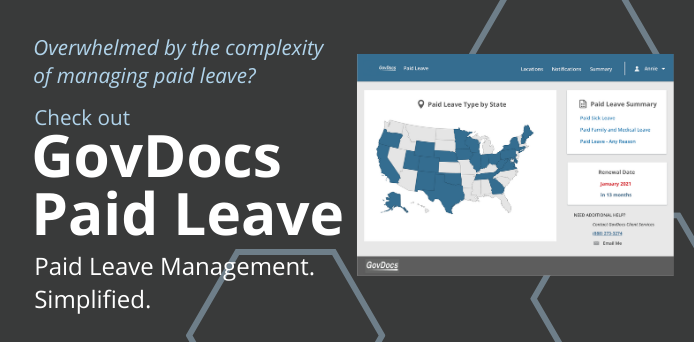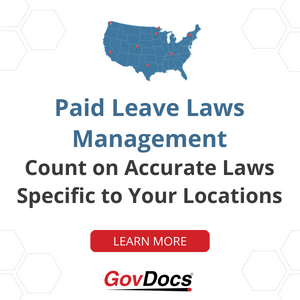EMPLOYMENT LAW NEWS
Federal Pay Transparency Bill
By Kris Janisch
Published May 23, 2023

While the federal pay transparency bill has several hurdles to overcome before it becomes a law, it is indicative of the rise of such legislation in recent years.
A federal pay transparency bill was introduced this spring in the U.S. House of Representatives.
The Salary Transparency Act would look like many such laws across the country, requiring employers to disclose pay ranges in several situations.
If passed, it would amend the Fair Labor Standards Act and apply to all employers in the U.S.
Federal Pay Transparency Bill
Introduced in mid-March 2023, the federal pay transparency bill would create several obligations for employers.
For starters, employers would be required to provide the wage range in any public or internal job posting.
If there is no official job posting in circulation, employers would still have to disclose the wage range (or pay rate) prior to discussing compensation with the applicant and at any time they request it.
Third, a federal pay transparency law, if passed as written, would require employers to inform employees of their pay or wage range upon hire, at least annually thereafter, and any time they request it, as well.
Lastly, it would bar employers from refusing to interview, hire, promote, or employ an existing worker, or applicant for employment for exercising their rights under the law. Employers would also be banned from retaliating against employees or applicants for doing so.
Wage Range Definition
Under the federal pay transparency bill, the definition of “wage range” includes a good-faith estimate of what an employee would earn. This is a typical provision under pay transparency laws.
From the text of the bill under the definition of wage range:
Such term may include reference to any applicable pay scale, previously determined wage range for the position, the actual wage range for those currently holding equivalent positions, or the budgeted amount for the position, as applicable.
Also, “wage range” may include reference to any applicable pay scale, previously determined wage range for the position, or the pay range for incumbents in equivalent positions.
Penalties
Violations of a federal pay transparency law could include civil penalties of $5,000 for a first violation, increasing $1,000 for subsequent violations, but topping out at $10,000.
Employers found in violation could also be liable to each affected employee or applicant statutory damages between $1,000 and $10,000, or actual damages, whichever is greater, plus reasonable attorneys’ fees, and could be subject to such injunctive relief.
Latest Action
The bill hasn’t seen any activity since it was referred to a House committee on March 14, 2023, but it bears watching as pay transparency laws continue to gain footing in jurisdictions across the U.S.
Pay Transparency Laws
Like new minimum wage ordinances and paid leave laws, pay transparency has gained momentum of late.
Of course, as is the case with many employment laws, each jurisdiction handles them differently. Regarding the disclosure of salary ranges in job postings, check out these jurisdictions:
Elsewhere, some jurisdictions have other requirements, such as providing pay upon an applicant’s request or before extending an offer of employment. See our recent press release, Pay Transparency Laws by State: What Employers Need to Know, for more information.
Salary History Bans: Pay Transparency Cousin
In the same vein as pay transparency laws are salary history bans, which bar employers from asking about an applicant’s pay history. States with salary history bans include:
- Alabama
- California (and San Francisco)
- Colorado
- Connecticut
- Delaware
- Hawaii
- Illinois
- Maine
- Maryland
- Massachusetts
- Missouri
- Nevada
- New Jersey
- New York State
- Ohio (only Toledo and Cincinnati)
- Oregon
- Pennsylvania (Philadelphia only)
- Rhode Island
- Vermont
- Washington
Employers that operate in several jurisdictions across the country should research local laws to ensure compliance.
March 2023 Webinar – Clear as Mud: How to Comply with Pay Transparency Laws
Conclusion
While the federal pay transparency bill has several hurdles to overcome before it becomes a law, it is indicative of the rise of such legislation in recent years.
And because it would apply to all employers, regardless of size, it would be a major shift in the employment law landscape.
This Employment Law News blog is intended for market awareness only, it is not to be used for legal advice or counsel.
Keep Informed
with GovDocs Employment Law News
Who is GovDocs?
GovDocs simplifies employment law compliance for large employers in the U.S. and Canada. The GovDocs software platform integrates three solutions in one convenient place to help you master the employment laws impacting your business. Whether you manage a labor law posters, minimum wage or paid leave program, our products cut through research time, provide proactive insights into the everchanging landscape of employment laws and reduce the risk of noncompliance. The company is headquartered in Eagan, Minn.
The GovDocs Poster Store simplifies posting compliance for employers with less than 30 locations across all industries, offering a variety of posting products to meet your labor law compliance needs.





